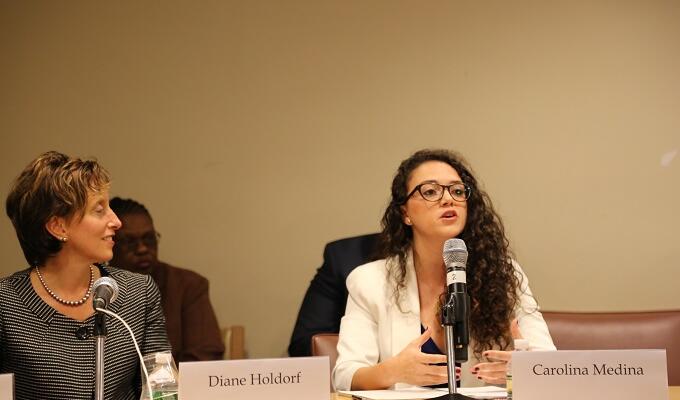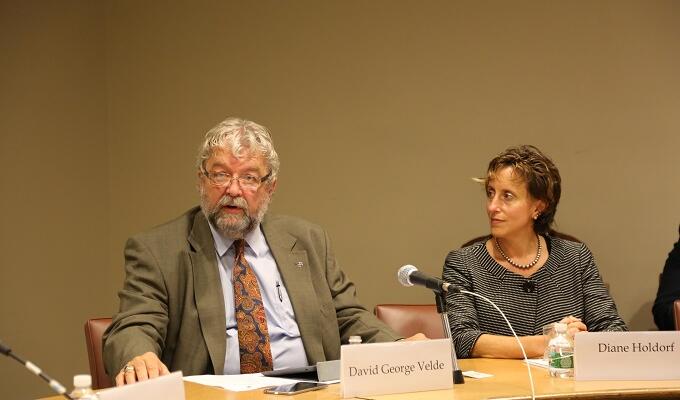

It’s time to make agriculture cool
What role can and should agribusiness play in the bid to achieve Goal 2 – end hunger, achieve food security and improve nutrition and promote sustainable agriculture – of the 2030 Agenda for Sustainable Development? According to Carolina Medina, Chief Executive Officer of Agruppa, a Colombian social enterprise, a first step is to make agriculture cool again so that young people feel proud to be part of the sector.
Ms. Medina was speaking at a side event at the United Nations General Assembly on 21 September, Supporting Agribusiness for Increased Food Security, Nutrition and Sustainable Food Systems in the context of the 2030 Agenda, organized by the International Trade Centre (ITC) and the Food and Agriculture Organization of the United Nations (FAO), and supported by the Governments of Italy and Japan.
Diane Holdorf, Chief Sustainability Officer and Vice President of Kellogg Company, stressed the need for agribusiness to have a much larger voice when policies are being formulated. ‘Without resilient food systems, we will have system failures,’ she said. ‘We want to be able to contribute to avoiding that, by ensuring that those on the ground are heard too.’
Her views were echoed by David George Velde, Board Member of World Farmers Organisation and Vice President of United States National Farmers' Union, who said that farmers, too, ‘value the quality of the water, resources that contribute to their life and their ability to produce a commodity’. He also underlined that farmers do recognize the value of sustainability, ‘particularly in areas that can result in the ability of producers – frequently women – to be able to improve their position and their ability to sustain the economic, social base of their families and the communities that they live’.
Maria Helena Semedo, Deputy Director-General of FAO, stressed the need to bring back the perception that food is a public good in order to strengthen rural-urban linkages. She highlighted the need to “ensure fair, inclusive trade and market policies, programmes, and projects – for both formal and informal markets, as well as regional and international markets”..
Panellists also explored how trade policies can lead to greater market opportunities for smallholder producers and distributors of locally or nationally produced foods, which can help boost sustainable and inclusive growth as well as food security.
‘Overseas expansion of food value chains can provide new marketing opportunities for farmers,’ said Mr. Koji Miyaura, Director of Policy Division, Food Industry Affairs Bureau, Ministry of Agriculture, Forestry and Fisheries (MAFF) of Japan. ‘To achieve this, is to enhance the value of products.’ He also said that Japan is supporting this effort by conducting surveys on to identify bottlenecks in food value chains in Asia and Africa.
Pointing to the issue of food security, Pietro Sebastiani, Director-General for Development Cooperation at the Italian Ministry of Foreign Affairs, said: ‘Resilience is vital for food security. It is important to implement early warning systems. Food systems finally need to be inclusive. We must do our upmost that everyone exercises social and political rights.’
ITC Executive Director Arancha González, who also moderated the event, pointed to the opportunities for knowledge transfer between agriculture and other sectors. ‘Agriculture is more knowledge-intensive than manufacturing, and offers great opportunities for technological learning,’ she said. ‘There are solid grounds to believe this learning could spill over into other sectors.’



